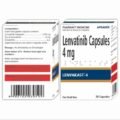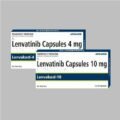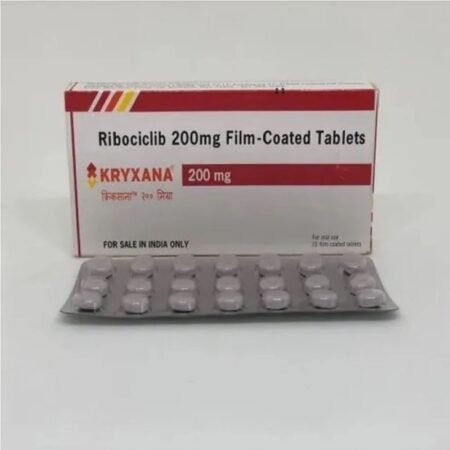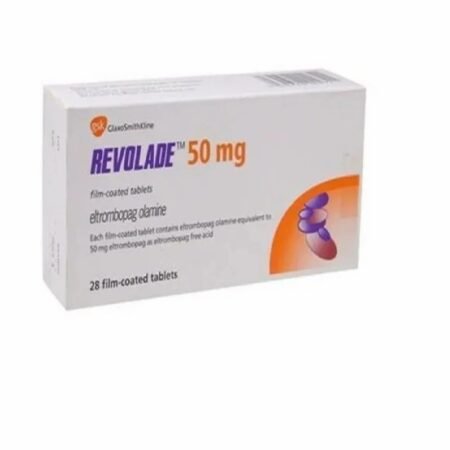Description
Lenvakast (Lenvatinib 4mg ,10mg) is a prescription medicine that is used to treat certain kinds of cancer.Lenvakast is used by itself to treat differentiated thyroid cancer (DTC), a type of thyroid cancer that can no longer be treated with radioactive iodine and is progressingLenvakast is used along with another medicine called everolimus to treat advanced renal cell carcinoma (RCC), a type of kidney cancer, after one course of treatment with another anti-cancer medicineLenvakast is used by itself as the first treatment for a type of liver cancer called hepatocellular carcinoma (HCC) when it cannot be removed by surgeryIt is not known if Lenvakast is safe and effective in children.IMPORTANT SAFETY INFORMATIONLenvakast may cause serious side effects, including:high blood pressure (hypertension): High blood pressure is a common side effect of Lenvakast and can be serious. Your blood pressure should be well controlled before you start taking Lenvakast. Your healthcare provider should check your blood pressure regularly during treatment with Lenvakast. If you develop blood pressure problems, your healthcare provider may prescribe medicine to treat your high blood pressureheart problems: Lenvakast can cause serious heart problems that may lead to death. Call your healthcare provider right away if you get symptoms of heart problems, such as shortness of breath or swelling of your anklesproblem with blood clots in your blood vessels (arteries): Get emergency medical help right away if you get any of the following symptoms: severe chest pain or pressure; pain in your arms, back, neck, or jaw; shortness of breath; numbness or weakness on one side of your body; trouble talking; sudden severe headache; sudden vision changesliver problems: Lenvakast may cause liver problems that may lead to liver failure and death. Your healthcare provider will check your liver function before and during treatment with Lenvakast. Tell your healthcare provider right away if you have any of the following symptoms: your skin or the white part of your eyes turns yellow (jaundice); dark “tea-colored” urine; light-colored bowel movements (stools); feeling drowsy, confused or loss of consciousnesskidney problems: Kidney failure, which can lead to death, has happened with Lenvakast treatment. Your healthcare provider should do regular blood tests to check your kidneysincreased protein in your urine (proteinuria): Proteinuria is a common side effect of Lenvakast and can be serious. Your healthcare provider should check your urine for protein before and during your treatment with Lenvakastdiarrhea: Diarrhea is a common side effect of Lenvakast and can be serious. If you get diarrhea, ask your healthcare provider about what medicines you can take to treat your diarrhea. It is important to drink more water when you get diarrhea. Tell your healthcare provider or go to the emergency room, if you are unable to drink enough liquids and your diarrhea is not able to be controlledan opening in the wall of your stomach or intestines (perforation) or an abnormal connection between two or more body parts (fistula): Get emergency medical help right away if you have severe stomach (abdomen) painchanges in the electrical activity of your heart called QT prolongation: QT prolongation can cause irregular heartbeats that can be life threatening. Your healthcare provider will do blood tests before and during your treatment with Lenvakast to check the levels of potassium, magnesium, and calcium in your blood, and may check the electrical activity of your heart with an ECGlow levels of blood calcium (hypocalcemia): Your healthcare provider will check your blood calcium levels during treatment with Lenvakast and may tell you to take a calcium supplement if your calcium levels are low.
| Strength | 10 mg |
| Pack Size | 30 Capsules |
| Brand | Not specified |
| Packaging Type | Not specified |
| Composition | Not specified |
| Form | Capsules |
| Shelf Life | Not specified |
| Usages | Not specified |
| Country of Origin | Not specified |










